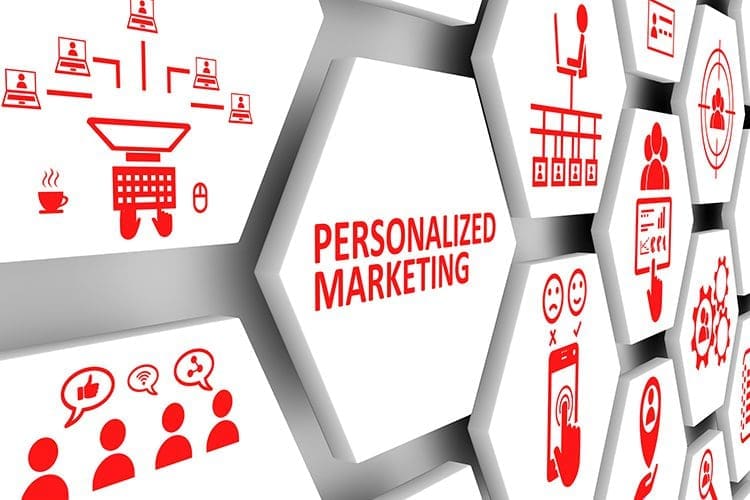When it comes to B2B personalized marketing, there are lots of ways to get results. Of course, B2B marketing is no different from other forms of marketing in that you’ll want to ensure you have a clear goal and strategy in place before launch. But there are certain things you can do to maximize B2B personalized marketing effectiveness as well.
What is personalized marketing?
First, let’s define B2B personalized marketing. Personalization involves targeting individual customers with customized and tailored content, offers or experiences to help build loyalty. This typically includes things like emails, messages, or pop-ups that are relevant to the customer’s interests and preferences. This is similar in this way, but it focuses on creating relationships with business partners rather than individual consumers.
Creating an effective B2B personalized marketing strategy
Now that you know what B2B personalized marketing is all about, how do you create an effective strategy? Here are some things to think about:
1. Understand your target audience
Knowing who your target audience is will be key. Make sure you have a clear understanding of the businesses you are targeting and what their needs and wants may be.
2. Personalize your content
B2B personalized marketing is all about creating content that speaks to your target audience. Think about customizing emails, newsletters, blog posts, and other materials with relevant information for each partner.
3. Use automation technology
Automation is a great way to make B2B personalized marketing more efficient and effective. Look into automated tools such as email campaigns or AI-driven chatbots or tools that can help you deliver tailored content quickly and on a larger scale than manually created messages.
4. Track & measure results
Finally, B2B personalized marketing won’t be successful unless you measure the impact it is having. Track impressions, clicks, conversions, and other metrics to determine how effective your efforts are.

How personalization can help b2b marketers
B2B personalized marketing can help B2B marketers in a variety of ways, from increasing lead generation to creating better relationships with partners. Personalization helps B2B marketers stand out from the competition and build more meaningful connections with businesses. Plus, it helps B2B marketers create more targeted campaigns that are customized to fit the needs of their target audience. Overall, B2B personalized marketing is an efficient and effective way for marketers to reach their target audience and existing customers. It will also help increase brand loyalty and the overall customer experience with your organization.
Additional reading
- Customer Data Platforms: Use People Data to Transform the Future of Marketing Engagement
- Marketing 5.0: Technology for Humanity
The benefits of personalized marketing
The benefits are clear: B2B companies can target their campaigns more accurately and effectively, leading to increased engagement, conversions and sales. Personalized marketing provides a great way to personalize content and messaging, as well as provide more targeted offers based on user preferences and behaviors.
Examples of b2b personalized marketing campaigns
B2B personalized marketing campaigns can include everything from customized emails to targeted offers. For example, B2B companies could include a personalized call-to-action button in their emails that encourages customers to take an action based on their purchase history or preferences. Companies can also send customers individualized offers and discounts, tailored to the customer’s interests. B2B companies can also personalize their website content based on user preferences such as location, job title, and industry. These personalization efforts can help set you apart from your competition and keep your customers engaged.
How to create a successful personalized marketing strategy
Creating a successful strategy requires careful planning and implementation. Companies should start by gathering data about their customers, such as demographics, purchase history and interests. This information can be used to create tailored offers that are more relevant to the customer’s needs. In addition, B2B companies should look for ways to integrate personalization into their customer experience strategy. This could include using AI-driven personalization tools to create customized offers and content, as well as offering personalized customer service through chatbots and other automated systems.
By leveraging the power of B2B personalized marketing, companies can build long-term relationships with customers by providing them with a personalized customer journey and experience. With the right strategy and tactics, B2B companies can create successful personalized campaigns that drive engagement, conversions and sales – all while providing customers with a unique and tailored experience.
Additional reading
- Marketing Automation Unleashed: The Strategic Path for B2B Growth
- B2B Marketing Automation Third Edition
Customers’ preferences
Customers’ preferences are evolving and what used to be effective customer experiences are no longer. If you want true customer loyalty, your marketing strategy needs an upgrade. B2B personalized marketing is the key to engage customers on a more meaningful level.
Personalized marketing includes customer segmentation and targeting practices that allow businesses to tailor content or offers specifically for their customer base. It’s a way to ensure customer satisfaction and loyalty by delivering a customized experience tailored to specific customer preferences.
To maximize b2b personalized marketing effectiveness, businesses should focus on customer segmentation and targeting practices. They need to understand customer needs and develop customer relationships based on their preferences. Additionally, businesses can use automation tools that enable them to quickly and easily capture customer data, segment customer groups, and create customer-centric messages.
Get data without hassling your customers
Data collection is one of the most important elements of customer segmentation and targeting. Businesses need to understand customer preferences in order to create personalized customer experiences. However, gathering data can be challenging.
Using customer surveys or questionnaires can be time-consuming and difficult to manage properly. Automation can help with this process as it allows businesses to quickly and easily capture data without having to hassle customers for information. Automation tools such as customer relationship management (CRM) systems, customer analytics platforms, and customer lifecycle marketing solutions make it easy for businesses to collect data, segment customer groups, and create personalized customer experiences.
Analyze customer behavior
Once you have the data, you need to analyze customer behavior. Knowing customer needs and preferences will enable businesses to create targeted campaigns for their customer base. Automation tools can help with this process as well, providing insights into customer behavior and allowing marketers to better understand customer motivations and buying trends.
Challenges of personalized marketing
Personalized marketing can be challenging, as customer preferences can change quickly. Businesses must constantly update their customer segmentation and targeting strategies in order to stay ahead of customer needs. Additionally, businesses need to have a clear understanding of customer data in order to create meaningful customer experiences. If businesses do not have access to customer data or lack the resources to update customer segmentation and targeting strategies, their efforts may not be as effective.
Map out your content strategy
Once customer segmentation and targeting strategies have been determined, businesses can start creating customer-centric content. Content needs to be tailored to customer preferences and needs in order to maximize engagement. Businesses should create a content strategy that outlines the types of content they want to create, how often they plan to release it, and which channels will be used for customer outreach. Additionally, businesses should make sure their customer segmentation and targeting strategies are up-to-date so they can tailor content to customer preferences.
Create personalized content
Once customer segmentation and targeting strategies have been determined, businesses can create customer-centric content. Content should be tailored to customer preferences and needs in order to maximize engagement. Businesses need to understand customer interests and tailor their messaging accordingly. Additionally, businesses can use automation tools to help with the process of creating personalized content by providing customer insights that enable them to create customer-centric messages.
Increased customer loyalty, better ROI
By leveraging customer data and personalizing customer experiences, businesses can build customer relationships that increase customer loyalty. Customers are more likely to engage with brands that understand their needs and preferences, leading to increased customer satisfaction and loyalty.
In addition, businesses can maximize the effectiveness of their marketing activities. By understanding customer preferences, they can create targeted campaigns that drive better customer engagement and lead to increased sales. Additionally, businesses can use customer segmentation and targeting strategies to create more precise customer messages, leading to a higher return on investment for marketing activities.
Data analysis and metrics
To measure the effectiveness of personalized marketing, businesses need to track customer engagement and customer conversion metrics. Data analysis tools can help businesses identify customer trends and analyze customer behavior over time. This information can be used to inform future customer segmentation and targeting strategies and improve customer experiences.
One example of this is to track customer engagement with customer emails or customer surveys. By tracking customer responses to various marketing campaigns, businesses can gain valuable insights into customer preferences and tailor their customer segmentation and targeting strategies accordingly. Additionally, businesses should track customer conversion metrics such as customer lifetime value or customer retention rate in order to gauge the overall effectiveness of personalized marketing efforts.
What marketing technology is needed for personalization?
Businesses need to use the right marketing technology in order to make customer data actionable and create customer-centric experiences. For example, marketers can use customer relationship management (CRM) software to collect data, automate customer segmentation and targeting strategies, and track customer engagement metrics over time. Additionally, businesses can use customer data management platforms to analyze customer behavior and gain customer insights in order to create more targeted customer experiences.
There has also been a lot of talk lately with AI generated content. AI can be used to create customer-centric content by understanding customer data and customer behavior. AI solutions such as natural language processing (NLP) can help marketers understand customer preferences, generate customer insights, and create personalized content in real-time.
Common b2b personalized marketing questions
Some of the common questions asked by many marketers when it comes to personalized marketing include:
- How can I use customer data to segment customers and create targeted marketing campaigns?
- What technologies do I need for personalizing customer experiences?
- How can I measure the effectiveness of my personalized marketing efforts?
These questions can help businesses understand the importance of personalization and implement the right strategies to maximize their marketing efforts.
Conclusion
Personalized marketing is essential for customer engagement and loyalty. Businesses need to focus on customer segmentation and targeting practices in order to maximize effectiveness. Additionally, automation tools can help businesses quickly and easily capture customer data, segment customer groups, and create customer-centric messages. With an effective personalized marketing strategy, businesses can benefit from increased customer loyalty, better customer relationships, and a better return on their marketing investment.

